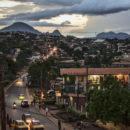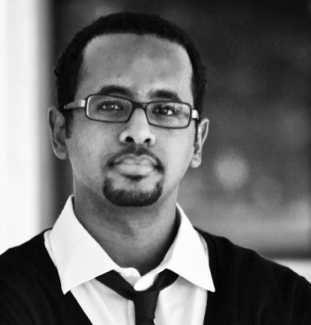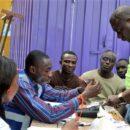Darfur: Going Nowhere in Doha
Djibrill Bassolé, chief mediator at the Doha peace talks, had a plan: a ceasefire between the hard men, which meant focusing initially on JEM among the armed movements; then a coalition of SLA splinters””ideally with Abdul Wahid, but if necessary without; then civil society, to give a stable core to the process.
So where are we today, almost two years after Bassole was appointed and almost 18 months after the first Doha talks? The ceasefire, such as it was, has collapsed””in spectacular fashion. JEM has withdrawn from Doha and is in a de facto alliance with SLA-Abdul Wahid with the stated intention of preventing government forces and militias from occupying Jebel Marra (which SLA-AW has only been able to defend thanks to support from JEM and, horribly, a government-supported militia). Attempts to form a coalition of SLA splinters have led to increased intra-factional fighting and further alienated Abdul Wahid””and the IDP camps he controls””from the peace process. Civil society did more in Doha than the movements have done””by coming up with a position paper to which every single individual subscribed””but saw the door slammed in its face by JEM, which has been insisting on a monopoly over peace-making.
At last count, 280 rebels were enjoying five-star luxury in Doha, with $35 per diems on top of their hotel bills. Few were actively involved in peace talks, if you can call what has been happening in Doha “˜talks’. As I understand it, the parties have not been sitting down together; mediators have been shuttling back and forth between them. Most of the time in Doha seems to have been spent devising workshops to keep the 280-odd “˜delegates’ occupied and give the illusion of activity.
The new fighting in Darfur, already highlighted by Alex, has not only been costly in human life. It has also, once again, targeted civilians. UNAMID is investigating reports of “˜gross’ human rights violations by government forces and militias in the battle for Jebel Mun, with many civilians (including women) reportedly “˜assaulted and tortured’. JEM, on the run, has stolen fuel and other commodities from civilians. There are reports that, before being driven from Jebel Mun, JEM’s men engaged in extortion and destroyed wells as a “˜retaliation measure'””presumably for support given to the breakaway Justice and Reform Movement of the local Missiriya Jebel community.
Humanitarian access is obstructed and constrained by insecurity and kidnappings. More than 60,000 displaced people have been cut off in Jebel Marra for months now. (I would mention in passing, here, that initial estimates of civilians killed in the government’s Jebel Marra offensive appear to have been exaggerated. In many cases, the Fur apparently took to the hills before their villages were bombed. A final determination will not be possible of course while full and free access is denied.)
With few exceptions, Darfur lobbies appear to have fallen asleep, waking only occasionally to lob a few shots at the US envoy, Gen. Scott Gration.
Reading the reports from Doha, you would have no idea that the entire structure envisaged by the mediation has collapsed, that the ceasefire is in tatters and the Sudan government, as far as one can see, is set on destroying the only movement capable of mounting a military challenge to it. And what a challenge: in one clash on 16 May, JEM ambushed a massive commercial convoy (600 trucks including 126 fuel tankers, according to one report) and killed 71 members of the Central Reserve Police escort””for the loss of only 23 JEM fighters.
The mediation is talking of ensuring that the “˜right stakeholders’ are at the table. Is it possible, after April’s elections, to have the “˜right’ stakeholders at the table? It is talking of developing “˜detailed ceasefire monitoring, verification and implementation plans and arrangements’ for the “˜existing ceasefire’. What ceasefire? It is talking of organising “˜broad-based and inclusive political consultations inside Darfur, conducted by UNAMID’. Does UNAMID have the capacity to organize such consultations, even in the best of times (which these certainly aren’t)? I rather doubt it.
The process begun in Doha will continue because it can’t be stopped. Senior UN officials admit that privately. Suspend a peace process intended to end a “˜genocide’? Impossible. But it’s time to stop pretending that there is reason for optimism. There isn’t. This peace process is going nowhere. Admitting that might be a first step forward.







A bit over-dramatic and spectacularly premature, no??
Julie: give it – the Doha peace process – a chance to gain traction; Rome not being built in a day and all that.
The Doha peace process – is the only, and last, game in town.
Period.
If JEM and SLA Abdul Wahid don’t want in (to the Doha peace process), then what do you expect the Sudanese government and the international community to do?? Sit on their hands whistling away until JEM and SLA AW see sense finally – which would be at great expense to the ordinary Darfuris languishing in the camps or in neighbouring Chad??
No way!!!
They’ve had seven years and counting to get their shite together, and have made numerous excuses, qualifiers for not joining or negotiating realistically the slew of internationally mediated peace talks about Darfur over the last four years.
Even if JEM or SLA AW did somehow eventually trundle into Doha, I’ll bet they would soon be complaining about the lighting in the negotiating rooms in Darfur (not yellow enough).
Apolitical ordinary Darfuri civilians (i.e the majority) want the conflict wrapped up at Doha for good – and that’s an important, and evidently overlooked, backbone that augurs well for the success of Doha.
Dear Julie,
Doha has turned out to be a road to perdition. The mediation must have forgotten what it means being a mediation. Anyhow they claim there will be a peace agreement within the next six months. However peace in the field is quite a different story – as already discussed on this site.
On the other hand, I wouldn’t want to be in the position of the mediator. JEM drives a hard bargain, as they do not want other movements to be in Doha. JEM holds a key role in the peace process, as they have the largest troops on the ground. But as we all know, JEM are not the solemn movement in Darfur and the quicker they realise that and stop feeling threatened by other movements – then there might be chance for peace agreements.
Dear Ibrahim,
Yesterday Dr Khalil Ibrahim made it crystal clear that he has lost confidence 100% in the Doha process and in its place is proposing that the negotiations are restarted in Libya or Eritrea. The Sudanese govt has been dutifully sending delegations to Abuja, N’djamena, Sirte, Addis Ababa and Doha, wherever the international community chooses for peace talks. There’s nothing different this time.
The people of Darfur are sick of war but they are also sick of injustice and marginalization. There’s no point in the mediator finding what he thinks is a fair solution to Darfur if the people reject it and the war continues. That happened in Abuja and M. Bassole is lining up for a re-run of Abuja in Doha.
And in any case Khartoum has made it perfectly clear that it wants the Doha talks wrapped up as soon as possible and replaced with a peace process inside Darfur in its place. Doha isn’t the be-all and end-all of peace negotiations in Darfur it is just another venue that has tried and failed, and unless the international community gets serious it won’t be the last one either.
I read your article.The things you have written sound very sincere and nice topics i am looking forward to its continuation. Many of us don’t know about this event. Your post is helpful in this case. it will help people know about such nobel events and will create awareness.
Julie,
I am curious where the best place – if any – to find transcripts, first hand coverage/interviews, etc. regarding the peace process. Much of my information is second hand through people such as yourself and while I appreciate the work I would like to look at the process first hand and draw my own conclusions before comparing them to second hand information.
Thanks in advance for the help.
Nick
The problem today continues to be that the rebel forces, aided and abetted by their outside supporters, are refusing any program for peace. To grasp what is going on here, on must consider the fact that, also in 2005, the Sudanese government signed a Comprehensive Peace Agreement (CPA) with the southern Sudanese rebels, ending a war that had devastated the country for decades. The CPA constituted a major achievement, entailing power and resource sharing. For years, Khartoum had sought and conducted talks with the rebels, in multiple venues, and the salient feature of the negotiations was that, just as progress seemed to be on the horizon, the SPLA/M representative(s), on advice of their international backers, would abandon the discussions. The Sudanese government has learnt a valuable lesson from that. Not to trust the West and let them get involved in Darfur as they did in the South.
Khalil Ibrahim and Abdul Wahid are not fighting this war for the Darfuri people, but for their own personal and regional (if not international) agendas. Its about getting the biggest possible concessions from Khartoum as they did with the CPA. But Khartoum is playing it tough and unfortunately rough. When people start looking at Darfur from the bigger angle, only then will people realise how complicated and unsolvable this is without bloodshed. The West has to back off (or nudge the rebels) if there is any hope of peace or at least stability for the people of Darfur.
Dear Julie
This may sound pessimistic,and I hope I am wrong, but the way i see it is that the Doha Process will be marking time until the referendum of Jan 2011, and the imminent secession of the South, this will give a new impetus to yet another referendum for self-determination in Dar Fur, and of course its secession, after all and some from Dar Fur keep repeating Dar Fur was not part of Sudan, but was annexed.
Nick, the answer to your question that is that there is almost nothing to see unless you seek it out for yourself (and there are, as I said, hundreds of people in Doha). Some members of the mediation are pushing for a public information strategy to provide transparency on the negotiating process and to generate support for the Doha process, but Bassole has consistently resisted this. His low-profile approach was refreshing after the heavy emphasis placed on the media by his predecessors. But I believe his refusal, from the very beginning, even to begin to explain his strategy has been counter-productive. The movements were not ready to negotiate when Bassole took over; one of his first challenges was to make them ready. But his decision to prioritize JEM, which made sense at the time, was seen as portraying a pro-Zaghawa bias and he immediately lost a lot of credibility among the movements especially the Fur. Even minimal explanation of his strategy would have helped.
Having said that, as I have written before, the fault for the failure of the peace process is not the mediators. It is the parties. The mediators cannot want peace more than Darfurians do.
On other points, the Doha process surely has to be seen in the context of the peace effort that began in 2004. That’s almost six years in which to gain traction–six years of five-star hotels, the international conference circuit, high (and seldom critical) media profile and pious commitments to peace and the Darfurian people. I’m certainly not suggesting that anyone sit on their hands whistling; I am simply saying that Doha has run into a brick wall.
Suggestions that it is making progress are at best misleading and at worst damaging. While attention is focused on Doha and the principals of 2003-04, inter-Arab fighting (between tribes that were on the same side in 2003-04) is taking hundreds of lives, especially in South Darfur. As in 2003-04, there are allegations that the government is arming one side in the fighting. But the international focus is on the governments willingness to continue talking in Doha not on whatever may (or may not) be happening in South Darfur.
I do not believe Doha will do anything for ordinary civilians languishing in the camps. I rather suspect the last chance for peace was missed sometime around 2005. Is it perhaps time for the international community to step back (while enabling different groups to get together in Darfur) and ask what is surely the key question: what can the international community do to make the cost of war too high?
The whole mess in Darfur is a screaming, crying shame, and nobody seems to be able to do anything real about it. I can see the point of letting Doha peace process to start gaining some traction, but someone might want to start coming up with alternatives in case it just doesn’t work. While it’s true that it takes two people to start a fight, it only takes one to start murdering people. A lot of people have figured this out throughout history, which is one of the reasons why pacificm hasn’t historically worked very well. Pacifism only works if the pacifist is willing to let himself and everyone he cares about get slaughtered in the name of not fighting.
Donald from Baldness Causes